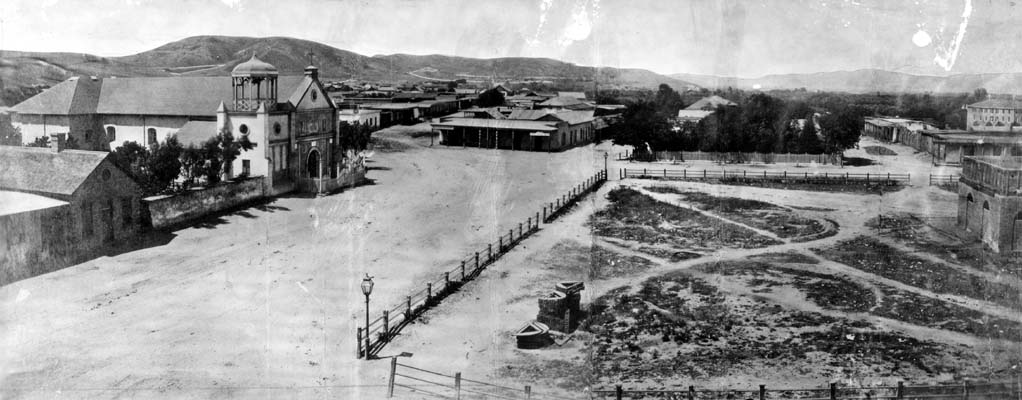AARP Eye Center

The Los Angeles coastal area was first settled by the Tongva and Chumash Native American tribes thousands of years ago. In 1542, Juan Rodríguez Cabrillo, a Portuguese-born explorer, claimed the area of southern California for the Spanish Empire. Gaspar de Portolà and Franciscan missionary Juan Crespí, reached the present site of Los Angeles on August 2, 1769.
In 1771, Franciscan friar Junípero Serra directed the building of the Mission San Gabriel Arcángel, the first mission in the area. On September 4, 1781, a group of forty-four settlers known as "Los Pobladores" founded the pueblo called "El Pueblo de Nuestra Señora la Reina de los Ángeles del Río de Porciúncula"; in English it is "The Town of Our Lady the Queen of Angels of the Porciúncula River". The Queen of Angels is an honorific of the Virgin Mary. Two-thirds of the settlers were mestizo or mulatto with a mixture of African, indigenous and European ancestry – but all would have spoken Spanish as their primary language.
The settlement remained a small ranch town for decades, but by 1820, the population had increased to about 650 residents. New Spain achieved its independence from the Spanish Empire in 1821, and the pueblo continued as a part of Mexico. During Mexican rule, Governor Pío Pico made Los Angeles Alta California's regional capital. Today, Los Angeles is the second-largest city in the United States, with a population of more than 3.7 million.
You can still visit the site of the original pueblo, which is commemorated in the historic district of Los Angeles Pueblo Plaza and Olvera Street, the oldest part of the city.
We hope you've enjoyed our four weekly posts celebrating Hispanic Heritage Month. Thanks for reading!
Want to be the first to know about upcoming AARP events in your community? Sign up for our email list and join us on Facebook and Twitter to stay informed!























































